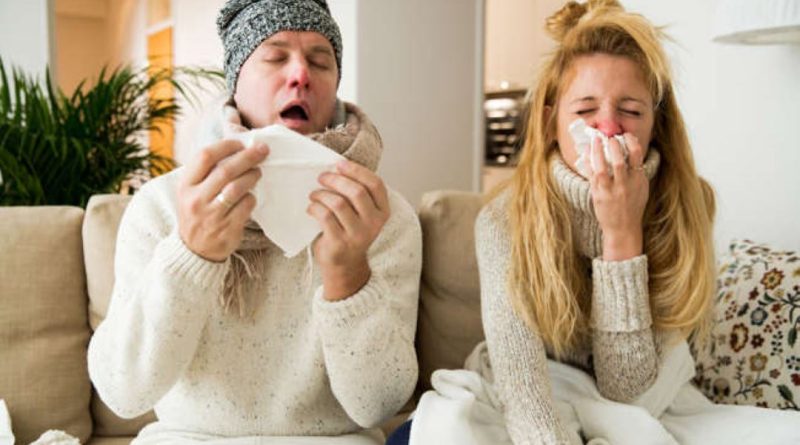Some people can’t tell the difference between sinus infection, cold and allergies
It can be difficult to tell the difference between a cold, a bacterial sinus infection, and allergies. Getting a stuffy nose and headache are common symptoms of all three of these conditions, which can cause a lot of confusion for sufferers. However, recognizing their key differences can give you some clues. What’s more, it’s crucial when it comes to treatment.
Let’s check out these confusing symptoms, as well as prevention and treatment options!
A sinus infection is the inflammation of the nasal passages, caused by bacteria. Sinus congestion can result in an aching sensation and a feeling of fullness in the middle of your face. The sinus pressure, or headache, worsens when you lean forward or lie down.
Bacteria or viruses trigger sinus infections. They’re also caused by colds, allergies, and asthma. Usually, sinus infections clear up on their own, but some might require medication. If it lasts longer than seven to 10 days, then you may be prescribed with antibiotics.
A common cold is a viral infection, which affects your nose and throat. With a common cold, you’ll experience a stuffy and runny nose. You should also expect a sore throat and headaches, as well as coughing and sneezing. Colds can also trigger a fever.
A cold is the result of viruses that cause inflammation of the membranes that line the nose and throat. It can result from one of more than 200 different viruses.
The cold virus usually goes away without treatment within seven to 10 days. But if the symptoms linger for longer, then you might have sinusitis.
An allergy is an inflammation of the nasal passages, caused by exposure to allergens, such as pollen. Nasal congestion is a common allergy symptom. It’s usually accompanied by a runny nose, sneezing, and an itchy nose and eyes. Keep in mind that allergies never cause a fever.
Allergic reactions are caused by allergens. Common indoor allergens include mold, dust, and animal dander. Outdoor triggers include pollen and ragweed. If you have seasonal allergies, then your symptoms kick in throughout the spring and fall. If you’re allergic to indoor allergens, you may experience symptoms year round.
How to treat congestion
Because these conditions share some similar symptoms, such as congestion, medications like nasal sprays, oral antihistamines, and eye drops can help minimize your discomfort. One of the best ways to help clear up viral infections include getting as much rest as you can
And if you’re on allergy meds, continue taking them as you normally would. They can be helpful for suppressing some symptoms. Clear liquids, such as water and broth, are the best when you have a cold and sinus infection. This is because it helps lubricate the mucous membranes of the throat.
When it comes to allergies, do your best to avoid your triggers and potential irritants. But there are also treatments with antihistamines and immunotherapy. Consider seeing an allergist if you have prolonged and severe symptoms, asthma, and recurring sinus and ear infections.
When people have colds or allergies, the lining of the nose swells up. This prevents mucus from draining properly, which can then lead to sinusitis. People with allergies or asthma may be more vulnerable to sinusitis, because the airways are more likely to become inflamed.
If you’re at higher risk for sinus infections, don’t let allergy symptoms spiral out of control. Treat it promptly, and also take steps for prevention. The answer is no. Since they form inside the nose and not through an outside infection, bacterial sinus infections are not contagious.
However, when it comes to sinus infections, if your symptoms worsen or last longer than two weeks, then you should see a doctor for relief. Luckily, there are prevention methods. Help your immune system fight off viruses and infections by doing the following…
Protect your immune system by getting enough sleep. Most adults need at least seven hours of sleep per night. This one is always a good reminder. Diets heavy in fruits, vegetables, and whole grains, and that are low in saturated fat, are the best.
Make sure to wash your hands with soap and water to kill any bacteria. When that’s not possible, use a hand sanitizer. Smoking lowers the body’s immune response and makes it more vulnerable to viruses, as well as other serious diseases.
Alcohol and caffeine don’t count! Dryness is the number one enemy of a healthy respiratory system. Make sure to drink plenty of water.




